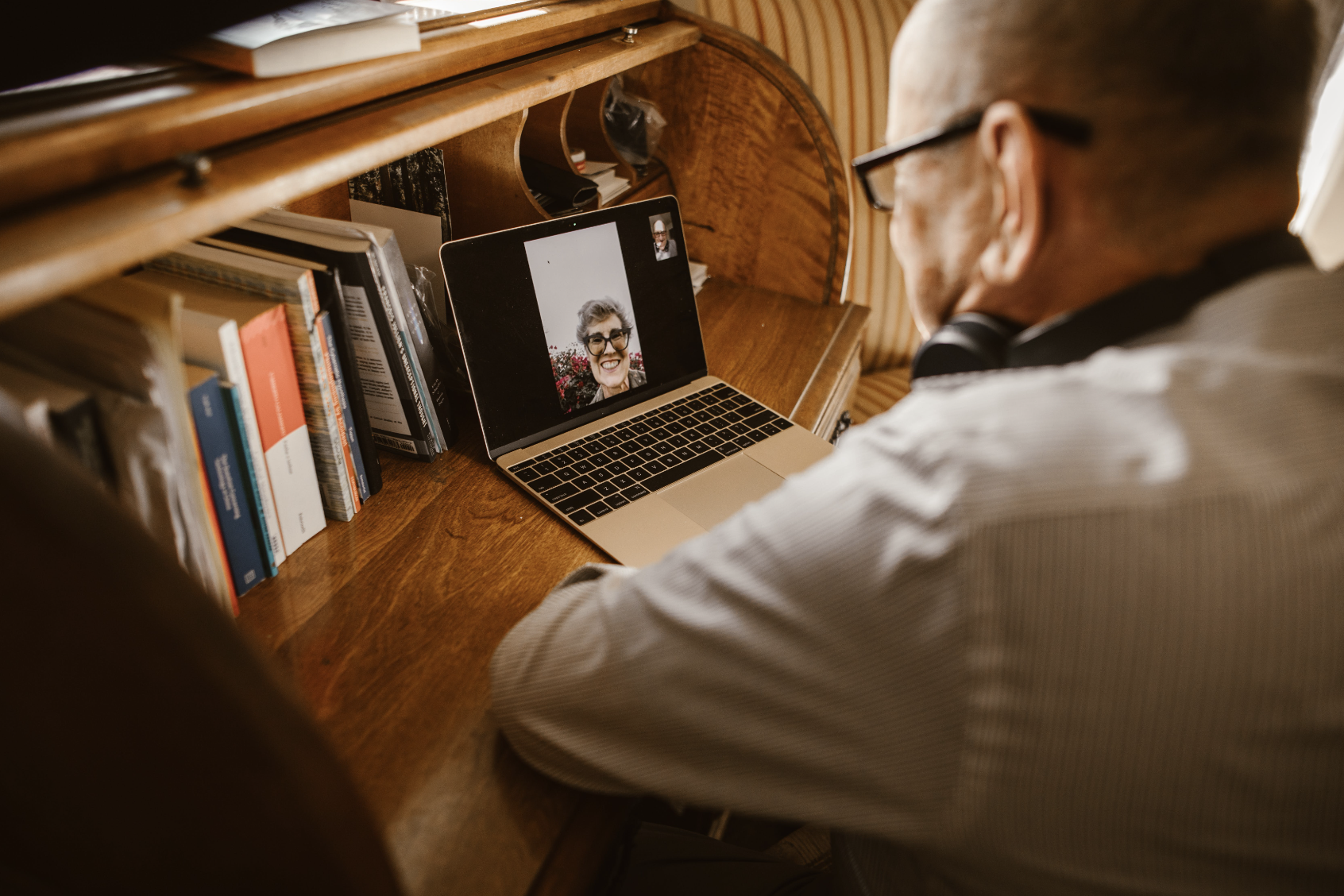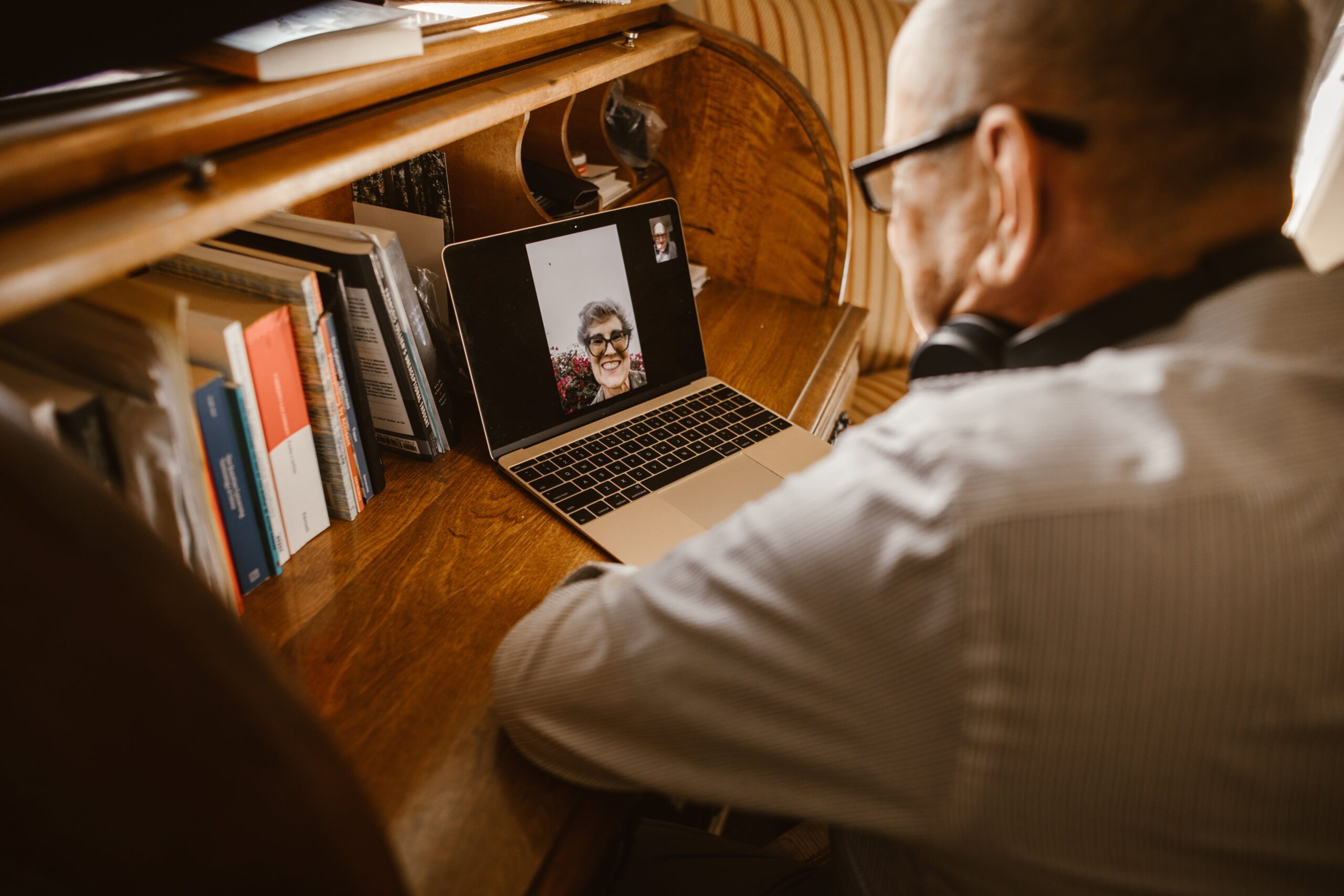
Technology Guide for Older Relatives and Their Caregivers

Plenty of user-friendly technologies are on the market today for our older relatives and their caretakers. Here’s a list of currently available devices curated by helloEd that may help them.
1) Visual Clock & Reminder
Visual clocks help with keeping track of the time, day, and date for people who have trouble keeping track of time and reading clock faces. Losing one’s sense of time can lead to confusion, anxiety, challenging behavior, and even anger. It can also cause people to forget to keep appointments, take medications, pay bills, and do other things that would help them maintain some independence.
Here are some possible choices from helloEd: Robin Premier Clock and Visual Clock.
2) Specialized Phones
Phones are an essential way to maintain connections with others. Available devices include home or mobile phones and visual or video queues to assist those with poor vision, memory, and hearing. Some devices can also give the reassurance of facial expressions for nonverbal communication. People of all ages can experience social isolation and loneliness, so communicating more easily is rewarding for families across generations.
Here are some possible choices from helloEd: Future Call and Memory Phone.
3) Medication Dispensers
Medication dispensers help people store, organize, and remember to take medications. A medication dispenser most often comprises a storage place for tablets, dosage times or reminder settings, and a power source, such as a battery. Unlike traditional, simple day-of-the-week dispensers, these new tech-enabled tools can include features like reminders, alerts when medications are not taken, and safe locks to prevent people from taking medications at wrong times or in wrong quantities.
Here are some possible choices from helloEd: Live Fine and MedCenter.
4) SOS Alarms, Fall Alarms, & Trackers
We have all seen the commercials with a person who has fallen and can’t get up. The modern devices in these commercials are ways of calling for help when needed, detecting falls, being found, or locating someone if there’s cause for worry or concern. People with memory issues may occasionally wander away from home, so knowing where they are at any given time is critical.
Here are some possible choices from helloEd: AngelSense and Tracki GPS Locator.
5) Home Assistants & Smart Plugs
Voice assistants or home hubs can assist in making voice and video calls, allowing your family to drop into your room, detect movement, and automate or voice activate lights and appliances. They can also help you get help, ask for information, or turn on entertainment. You can use these devices to perform various skills, like banking, calling an Uber, booking an appointment, asking for the weather, checking appointments, or ordering food. Amazon has invested significantly in this area, particularly by developing the Alexa Care Hub to help families care for their loved ones remotely.
Here are some possible choices from helloEd: Alexa Care Hub and Google Nest Hub Max.
6) Sleep & Oxygen
A sleep tracking device, such as a mat or wearable device, can continually measure metrics such as sleep hours, heart rate, blood oxygen saturation, movement, and apnea. The results can then be sent to a doctor or specialist to gain critical insights into what might affect the demeanor, alertness, or health of a person.
Here are some possible choices from helloEd: Withings Sleep Mat and Oxylink Wearable.
7) Heart Health & Blood Pressure
Blood pressure monitors can test, measure, and store heart health information, which may be used to understand, predict, or reduce health incidents. Testing can be done routinely at the end of the day if there is a concern, such as fatigue or discomfort, or during visits by family or carers to help build a picture over time.
Here are some possible choices from helloEd: AirBP Blood Pressure Monitor and Omron Upper Arm Blood Pressure Monitor.
8) Home Sensors & Movement Detection
SmartHome products and sensors can assist in detecting movement or the lack thereof, detecting water leaks, detecting carbon monoxide, measuring smoke and air quality, and opening doors and windows. These devices can also trigger notifications, alerts, alarms, or actions, like turning off taps. Such devices can help in maintaining independence, preventing incidents, and managing risk.
Here are some possible choices from helloEd: Philips Movement Detection and Eve Smart Home Sensors.
9) Camera, Video Doorbell & Smart Lock
These products are invaluable in helping people see who’s at the door, remotely opening the door, and talking with them. A household can also use these devices as security measures. Furthermore, families can use these devices to determine if someone left home unexpectedly or has been gone a long time. These products can also help in finding lost keys or remotely opening the door for a wellness check.
Here are some possible choices from helloEd: Arlo and Ring Video Doorbell.
10) Entertainment, Information, & Tasks
Voice assistants, tablets, and simplified music players/radios can assist with calm, enjoyment, entertainment, and productivity (e.g., by helping with booking appointments, paying bills, or learning). Mental fitness and memory games are widely available on voice assistants and tablets.
Here are some possible choices from helloEd: Alexa Show and GrandPad Simplified Seniors Tablet.
Some of the technologies mentioned above may help ease the burden of aging. We hope that you and your loved ones found them useful.
 Secure Document Sharing
Secure Document Sharing


